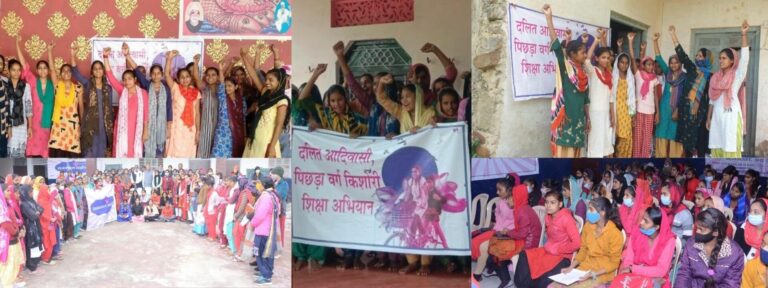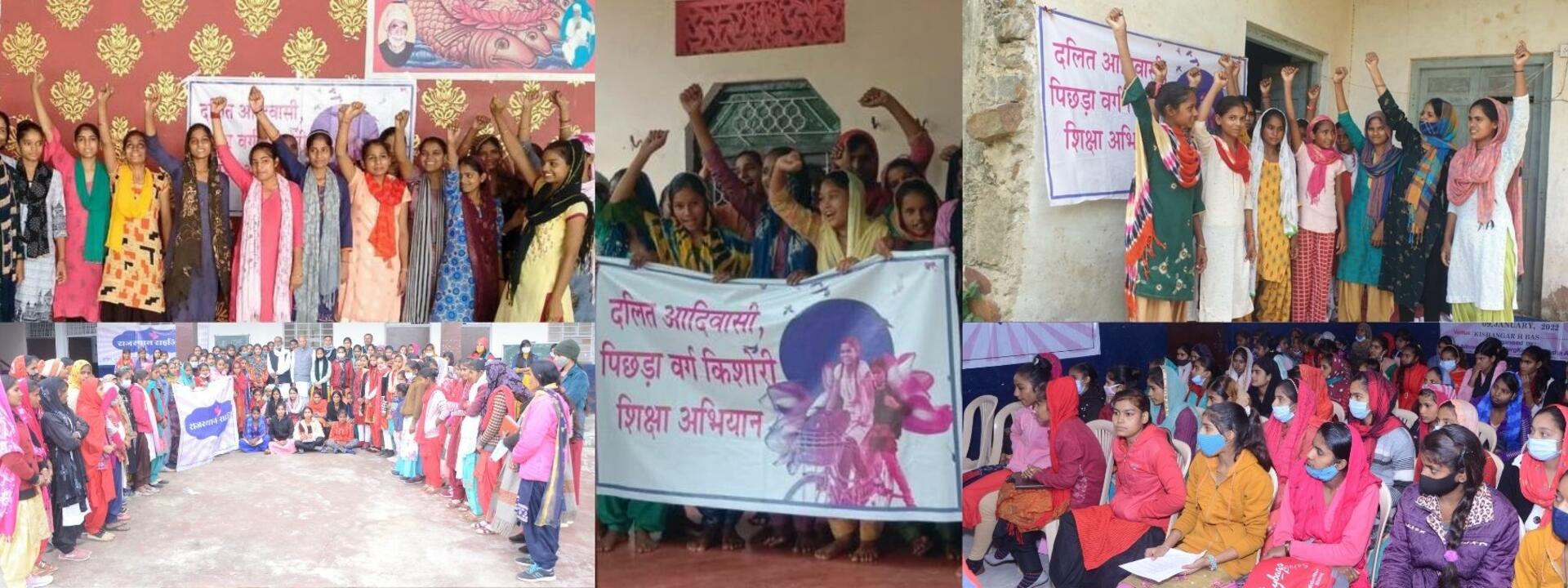
Rajasthan Rising: the Indian girl-led movement
Over the first six months of 2022, Empower to Plan funds helped to grow a collective of 5,000 girls determined to end child marriage in India. The Rajasthan Rising movement has since gone from strength to strength, creating a ripple effect of engaged and empowered leaders defending and promoting girls’ rights in their community. Here, we report on what they have achieved over the past six months.
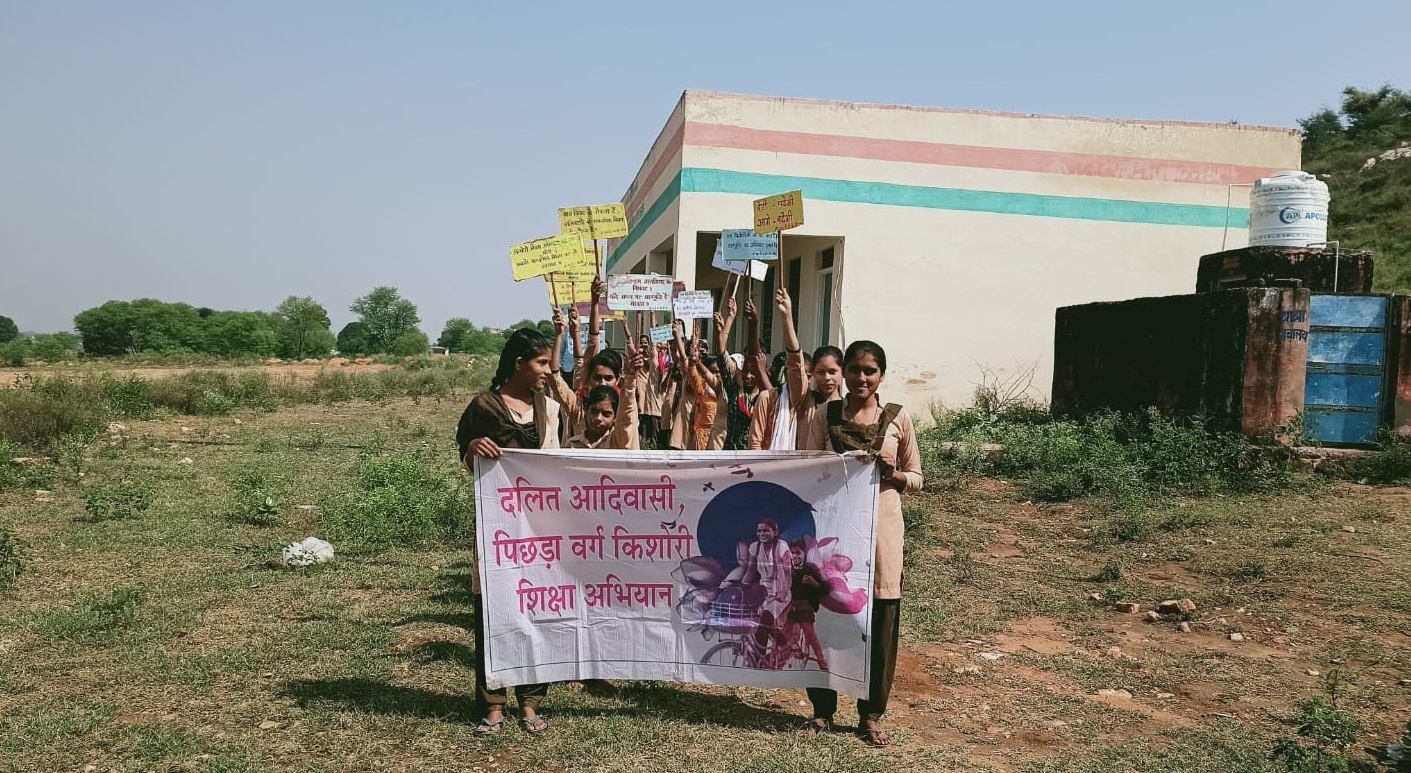
With the generous support of Empower to Plan donors, Rajasthan Rising was able to recruit and train 17 girl leaders as part of a 6-month programme focused on community organising, sexual and reproductive rights and climate justice.
The leadership sessions engaged local activists as mentors, including from Indian feminist human rights organisation CREA and Greenpeace India. Rajasthan Rising’s coordinator, Neha Saigal, comments that:
“In the beginning, we weren’t sure whether there would be interest in these topics. The girl leaders told us after the session on sexual and reproductive health that no one had spoken about this with them before. They realised how important these issues are and wanted to engage more. Over the past few months, we have witnessed the girl leaders learn about and engage with some of the most critical issues related to gender, health, education and climate change.”
Neha Saigal, Co-ordinator
While learning about these interconnected issues, the girls’ daily lives began to change. Some, like 13-year-old Sanjana, had dropped out of school during the COVID-19 pandemic due to financial pressures. Sanjana’s parents insisted that she stay at home to help with household chores, but Sanjana found the courage to attend a Rajasthan Rising community meeting and speak out about her situation. She told the girl leaders hosting the meeting that she had been out of school for over a year and she missed her studies. They then visited her home and convinced her parents to send her back to school. Thanks to Rajasthan Rising’s interventions, Sanjana is now completing Grade 7 at her local government school.
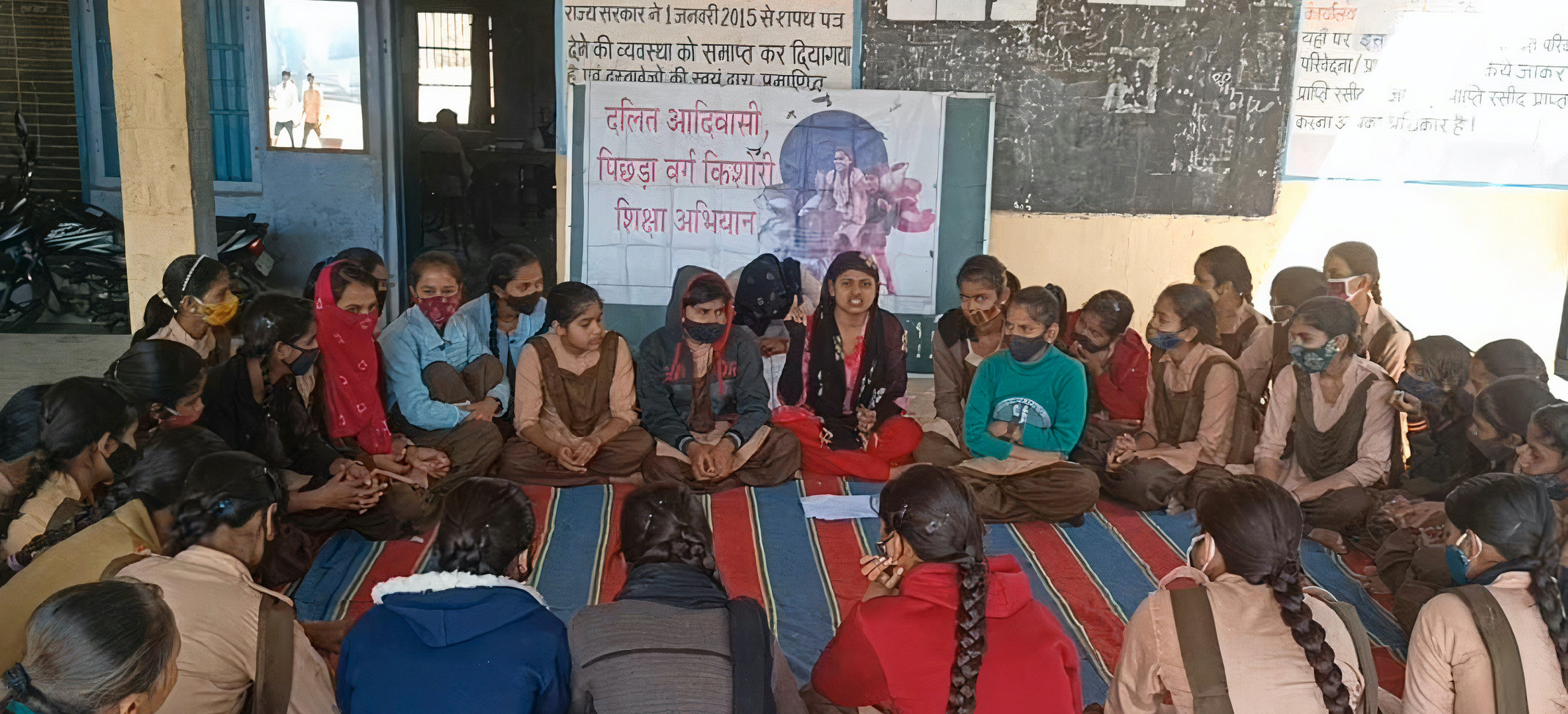
The longer a girl stays in school, the more likely she is to continue her education, find employment outside of the home and improve her economic opportunities. There is a direct correlation between the number of years a woman spends in education and the number of children she then has.
According to the 2018 World Bank report, ‘The Cost of Not Educating Girls’:
“Each additional year of secondary education is associated with lower risks of marrying as a child and having a child before age 18… if universal secondary education were achieved, child marriage could be virtually eliminated and the prevalence of early childbearing could be reduced.”
World Bank
This would of course then result in enduring positive impacts on women and children’s health and wellbeing, reducing fertility rates and slowing population growth both locally and globally.
16-year-old Saira participated in the Rajasthan Rising leadership training course this year and is now a passionate advocate for ending child marriage. When her father lost his job as a labourer at the start of the pandemic, her family didn’t have enough money to support their six children. Against her will, Saira was forced to get married. She felt powerless until she met Vineeta Meena, recipient of Population Matters’ Young Campaigner Change Champion Award, who recruited Saira as a girl leader and helped to convince her father that she should finish her studies. Saira is now in her penultimate year of high school, with the goal of ensuring no other girl gets married at a young age without their consent.
“I am part of this training to fulfil my mission of stopping child marriages in my district.”
Saira, 16-year-old girl leader
Neha comments that the training has enabled the girl leaders to challenge oppressive social norms in their communities and create space for dialogue with key decision-makers, such as village elders. Each programme participant initiated a social change project, which in total has engaged a further 225 girls in Rajasthan’s Karauli and Alwar districts. These projects have had powerful outcomes, such as blocking a number of child marriages, re-enrolling girls in school and ensuring village access to sanitary napkins.
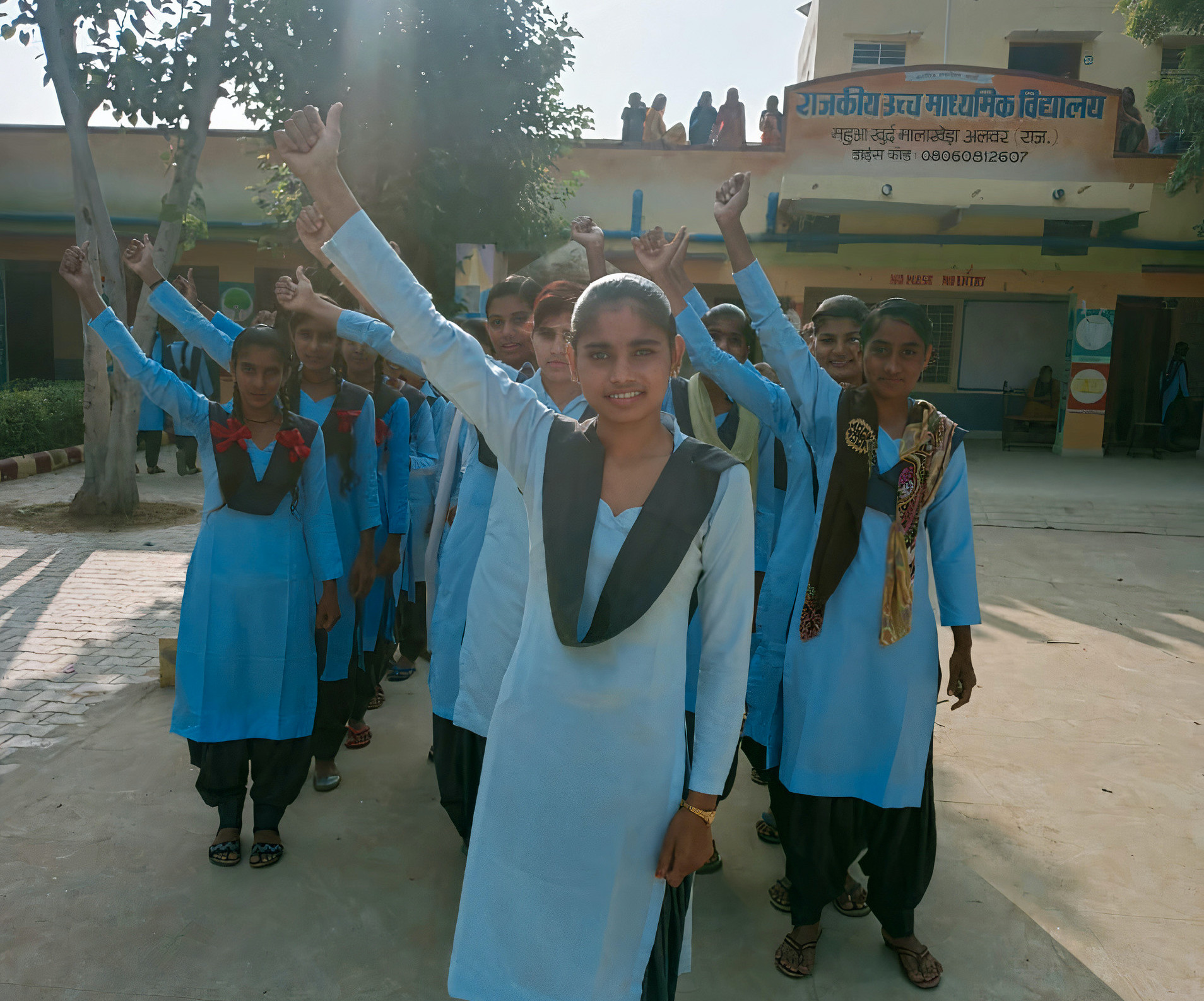
Over 100 community meetings have taken place since January 2022, reaching over 550 people. Neha and Noor, Director of Rajasthan Rising’s incubator NGO, the Alwar Mewat Institute of Education and Development, tell us:
“The 17 girl leaders who participated in this programme are now a strong voice against child marriage and gender-based discrimination in their villages. We want to thank you for your support of this programme, which has really helped us build more leadership among young girls calling for education and empowerment for all girls across Rajasthan.”
Alwar Mewat Institute of Education and Development
In just a few years, Rajasthan Rising has enabled thousands of girls to take a stand against child marriage. We are excited to see what they continue to achieve as they spread their message of happy and healthy futures for girls and young people in Rajasthan and across India.
To stay up to date with Rajasthan Rising’s actions and programmes, follow them here.


